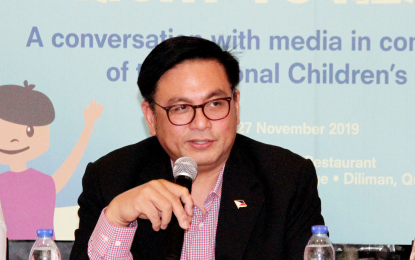
Muntinlupa Rep. Ruffy Biazon. (File photo)
MANILA – A lawmaker on Tuesday emphasized the need for reforms in police operational procedures (POP) concerning evidence gathering and preservation in order to establish innocence or probable cause for a case to stand trial.
Muntinlupa Rep. Ruffy Biazon made the call following reports that the two previous grave misconduct cases involving homicide against Senior M/Sgt. Jonel Nuezca were dismissed for lack of substantive evidence.
“As the record of (Senior Master) Sgt. Nuezca reveals, he has had a history of offenses including two grave misconduct cases involving homicide in 2019. Both were dismissed for lack of substantial evidence,” Biazon said.
Biazon said the Department of the Interior and Local Government (DILG) and the Philippine National Police (PNP) should not treat the killing of Sonya and Frank Anthony Gregorio as an isolated case, but look at it as a “symptom of an institutional ill” and an indication that something is “defective” in the institution.
“It may be the methodology and/or curriculum of training, their monitoring of the skills, mental health and discipline, or their standard operating procedures or protocols and they should perform an honest to goodness evaluation followed by a determination of the specific reforms they need to do to address the problem,” he said.
Biazon said House Bill No. 32, or the Body Camera Act, would greatly aid in providing incontrovertible evidence to hold erring law enforcers accountable for their misdeeds or help the PNP disprove false accusations made against police officers.
“I urge my colleagues in the House to begin deliberations and ensure the swift passage of the bill to break the culture of impunity in the country,” he said.
He said the Body Camera Act would provide a legal cover on the use of the equipment, which would ultimately produce evidence that could be used in court.
The bill prohibits the deactivation of body cameras until an encounter or operation has fully concluded and the law officer has left the scene.
It also provides for the storage and archiving of video footage for at least three years from the time it was recorded.
The PNP announced in October that some 2,600 body cameras were up for tests before their distribution to police field units, with anti-drug operations getting priority in the distribution of the body cams.
"Although it took years of reluctance and even a procurement corruption controversy before the PNP decided to implement the use of bodycams, we now look forward to police operations where any abuse of law enforcement will have video recorded evidence, which can be used to hold erring policemen accountable," Biazon said. (PNA)
